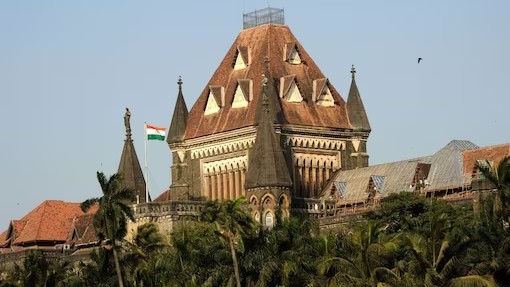Mumbai: The Bombay High Court has expressed grave concern over the proliferation of illegal structures in Mumbai, and the illegal occupants holding the law-abiding citizens to ransom undermine the rights of law-abiding citizens.
The court criticised the Brihanmumbai Municipal Corporation (BMC) for failing to comply with its 2015 order to demolish illegal slums outside Everard Co-operative Housing Society near the Eastern Express Highway.
A bench of Justices Ajey Gadkari and Kamal Khata held former Assistant Commissioner of ‘L’ Ward, Ajit Kumar Ambi, guilty of contempt and directed him to respond on the quantum of sentence by January 27, 2025.
The court also imposed a cost of Rs 5 lakh on slum dwellers, who encroached on footpath outside the society, for “suppression and misrepresentation of material facts” and sought a stay on the demolition.
The HC, on June 18, 2015, had directed the BMC to demolish illegal hutments and toilet blocks within six months. Despite repeated reminders, the BMC delayed action, citing reasons like municipal elections. The society then filed a contempt petition in 2017.
The bench noted there was “willful non-compliance” of its order. “Disobedience strikes at the very root of the ‘rule of law’… it erodes the faith and confidence reposed by the people in the judiciary,” the court observed, holding Ambi guilty of contempt.
Everard Society had first approached the court in 2000, highlighting illegal constructions on a 60-ft-wide road adjoining its compound wall. The society’s land was acquired by the BMC for a development plan (DP) road, but illegal structures, allegedly erected by slumlords, continued to thrive with municipal support.
Despite the court’s 2015 ruling declaring the structures illegal, squatters claimed eligibility for rehabilitation. Rejecting this, the bench stated, “We are unable to accept the contentions… the dwellers were eligible slum dwellers. The said structures were not declared slum areas on the date of the order (June 2015).”
The court observed systemic failures, including the complicity of municipal officers, corporators, and police in shielding illegal occupants. It remarked, “Illegalities thrive… while law-abiding citizens are expected to follow all laws strictly.”
Everard Society’s Advocate Meena Doshi, representing Everard Society, argued that BMC’s inaction forced the society to endure 24 years of illegal occupation. The court agreed, stating, “An illegality since inception firstly should not be condoned and secondly, if tolerated, certainly cannot be perpetuated to this extent.”
The bench dismissed the squatters’ petition with costs of Rs5 lakh payable to Everard Society within four weeks. The stay orders were vacated, and the BMC was directed to immediately demolish the illegal structures and restore the status quo ante. The court further ordered the BMC to expedite the DP road construction and file a compliance affidavit detailing actions against responsible officials.
Highlighting the need for stricter enforcement, the court remarked, “This case exemplifies how law-abiding citizens are dragged to court due to the hardships caused by squatters and landgrabbers.”
It concluded that strong judicial actions are essential to uphold justice and the rule of law. “Our conclusion is that, an illegal action perpetuates even after Court’s Orders as no action is taken against the wrongdoers, due to which justice is evidently delayed and consequently denied. The city, already overwhelmed by such illegalities, can only recover through the efforts of ethical individuals in power and strong judicial actions.
The Courts though overburdened on account of various factors should not be seen as a hapless observer and cannot certainly be used as a tool to permit and perpetuate illegality. Necessarily, the Court has to make it right. Courts must uphold the law and punish wrongdoers and protect the law-abiding citizens,” the bench concluded. The HC has kept the contempt petition for hearing on January 27, 2025.
